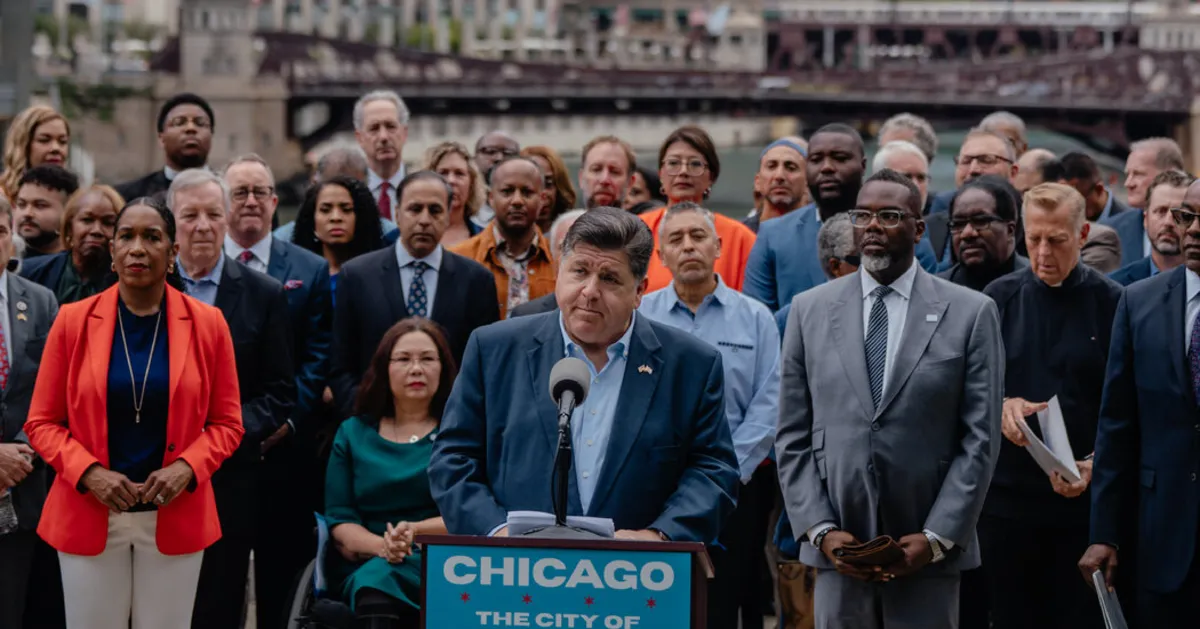
On Tuesday, President Donald Trump asserted that he possesses unlimited power as the President of the United States to deploy the National Guard in any state, raising eyebrows and prompting discussions about presidential authority. During a televised cabinet meeting that extended over three hours, Trump expressed his frustration with Illinois Governor JB Pritzker, a Democrat who has been vocal in opposing the President's threats to send troops to Chicago as part of a broader effort to combat crime.
President Trump directed criticism at Governor Pritzker, who has claimed that crime rates in Chicago have improved recently. “You have a guy in Illinois, the governor of Illinois, saying that crime has been much better in Chicago recently and Trump is a dictator,” Trump remarked. He went on to suggest that public opinion might be more favorable if he could effectively reduce crime, stating, “Most people are saying, ‘If you call him a dictator, if he stops crime, he can be whatever he wants’ — I am not a dictator, by the way.”
About thirty minutes later, Trump emphasized his view that he would gain more respect from Pritzker if the governor were to approve the deployment of the National Guard in Illinois. “Not that I don’t have — I would — the right to do anything I want to do,” Trump stated. He reinforced his position by declaring, “I’m the president of the United States. If I think our country is in danger — and it is in danger in these cities — I can do it.”
In his remarks, Trump suggested that he would have no issue stepping in to address the challenges faced by Pritzker and Illinois. He added, “But it would be nice if they’d call and they say, ‘Would you do it?’” indicating that he is open to involvement if requested. This assertion of power and willingness to act highlights the ongoing tension between state and federal authority, particularly in matters related to public safety and law enforcement.
As the debate over the use of the National Guard continues, it remains essential for citizens to stay informed about the implications of such actions and the ongoing discussions surrounding presidential power in the United States.